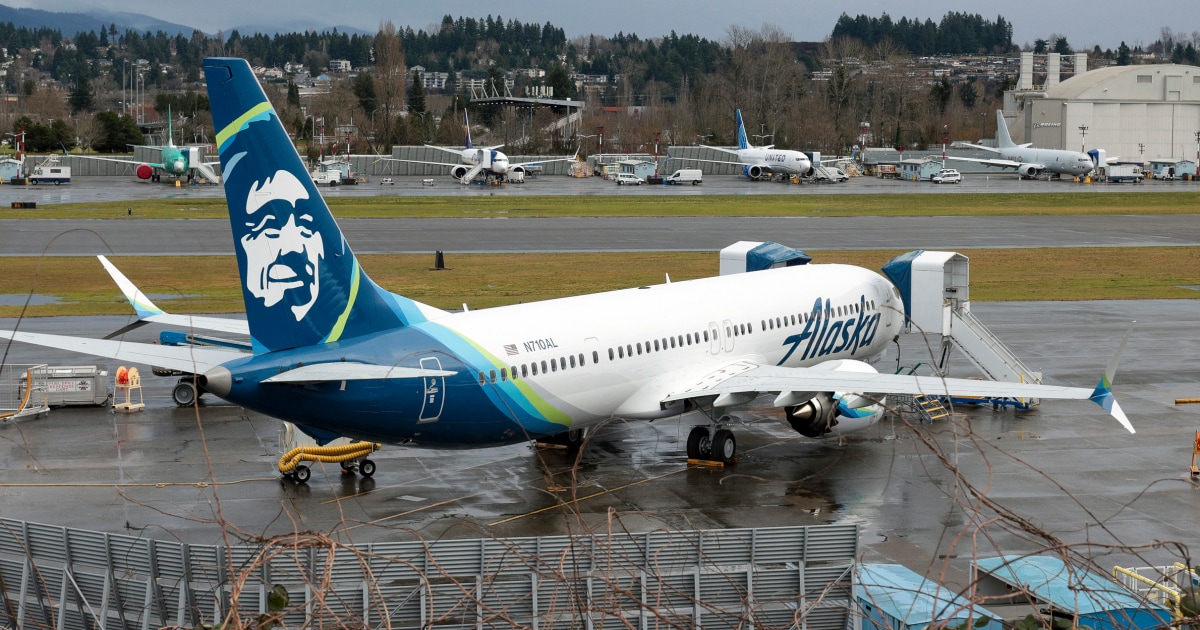The Department of Justice has initiated a criminal inquiry into the door plug incident on a Boeing 737 Max 9 aircraft during an Alaska Airlines flight in January, as reported by The Wall Street Journal on Saturday.
Citing sources familiar with the matter and related documents, The Wall Street Journal stated that the DOJ has reached out to certain passengers from the flight to inform them of their potential involvement in the criminal investigation. The agency has conducted interviews with pilots and flight attendants who were onboard during the incident.
Both the Department of Justice and Boeing declined to comment on the specifics of The Wall Street Journal’s report regarding the investigation.
Alaska Airlines issued a statement acknowledging the investigation, asserting its full cooperation, and expressing confidence that it is not the focus of the inquiry. The airline deemed the DOJ’s investigation as a standard procedure for such occurrences.
DOJ Investigating Door Plug Incident on Alaska Airlines Flight (Credits: NBC News)
The incident took place on January 5 when Flight 1282 departed from Portland International Airport bound for Ontario International Airport in San Bernardino County, California. However, shortly after takeoff, a section of the aircraft’s fuselage, known as the “door plug,” detached. Fortunately, no serious injuries were reported, and the aircraft landed safely. Nonetheless, officials underscored the potential severity of the situation.
The incident led to a temporary grounding of some Boeing 737 Max 9 airplanes, though they have since resumed service.
A preliminary investigation by the National Transportation Safety Board revealed that the door plug lacked bolts.
According to The Wall Street Journal, investigators are probing whether Boeing adhered to a settlement agreement following the 2018 and 2019 crashes involving 737 Max 8 aircraft, which resulted in the loss of 346 lives.
In those prior cases, the DOJ attributed blame to Boeing, which, in turn, pointed to two former pilots responsible for determining the necessary training for operating the Max planes. Boeing agreed to a $2.5 billion settlement in 2021, with the DOJ promising to drop a conspiracy charge against the company if it complied with the terms of the settlement for three years.
The report indicates that Boeing could potentially face prosecution for the original charge of defrauding the U.S. if the DOJ finds violations of the terms outlined in the 2021 settlement agreement. Moreover, the government may extend a three-year probationary period requiring Boeing to update the DOJ on compliance enhancements.
Following the Alaska Airlines incident, several passengers initiated legal action against both the airline and Boeing.
In the aftermath of the blowout, seven passengers filed a class-action lawsuit against Boeing, alleging improper installation of the door plug or defects in the bolts and seals used for installation.
Subsequently, in February, three passengers filed a $1 billion lawsuit against Alaska Airlines and Boeing, citing negligence and claiming that warning signs were disregarded, potentially preventing the door plug incident.
Jonathan Johnson, an attorney representing these passengers, expressed satisfaction with the DOJ’s investigation and emphasized the importance of holding accountable those responsible for the flawed manufacturing process.
This week, the Federal Aviation Administration disclosed findings from an audit of Boeing and Spirit AeroSystems, the manufacturer of the aircraft involved in the January incident. The audit revealed multiple instances of alleged failure to comply with manufacturing quality control standards by the companies.
